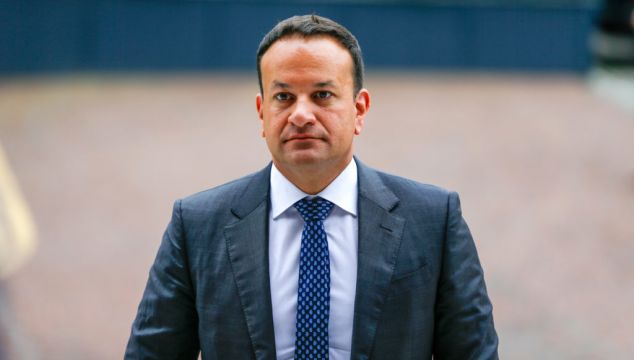Taoiseach Leo Varadkar has said there has been difficulty in agreeing the wording for an upcoming gender-equality referendum.
However, Mr Varadkar said Government is still “aiming for” a November referendum date.
It follows recommendations from a Citizens’ Assembly on gender equality which looked at specific sections of the constitution including a woman’s “life within the home”.
It said Article 41, which deals with the family, should be amended more generally so that it would protect family life, with the protection not limited to the marital family.
The assembly also said a subsection of that article should be amended in particular.
Article 41.2 currently states: “In particular, the State recognises that by her life within the home, woman gives to the State a support without which the common good cannot be achieved.
“The State shall, therefore, endeavour to ensure that mothers shall not be obliged by economic necessity to engage in labour to the neglect of their duties in the home.”
The assembly said Article 41.2 should be deleted and replaced with language that is not gender-specific and obliges the State to take reasonable measures to support care within the home and wider community.
The assembly also recommended that Article 40.1 be amended to refer explicitly to gender equality and non-discrimination.
Article 40.1 currently reads: All citizens shall, as human persons, be held equal before the law.
“This shall not be held to mean that the State shall not in its enactments have due regard to differences of capacity, physical and moral, and of social function.”
After considering these proposals, a special Oireachtas committee recomended a referendum or referendums on Articles 40 and 41.
In March, the Government announced its intention to hold a referendum on gender equality in November.
At the time, it said the general scheme of the referendum bill would be published by the end of June and there would be a five-week parliamentary process leading to its enactment.
Speaking to reporters, Mr Varadkar said there “had been difficulty” with the wording.
“We are conscious that referendums can go wrong: Low turnouts, extraneous arguments being brought into the picture, so we’re wise to that.
“And once you put wording in the Constitution, you know, it’s the courts that decide what it means not people who get elected by the people.
“So we just need to make sure we get the wording right. But we’re going to do it and the intention is still to do it by the end of November.”
He said there are two aspects to the referendum:
“There’s the wording in the Constitution that says the family is founded on marriage and marriage alone.
“I think we all agree that in the modern world, there are lots of families that are not married families.
“You know, families led by grandparents; families led by couples that aren’t married; one-parent families; but we need to make sure that we get that wording right and people don’t misinterpret it.
“I’d have a fear that people will misinterpret us as trying to delete the family or to delete marriage when actually the Constitution protects both marriage and the family – but it’s the linking of the two that is something that we think should change.”
He said the second aspect related to the life of women in the home.
He said: “In relation to replacing the old-fashioned wording around the role of women in the home with something affirmative, deletion is easy but we want to replace it with something affirmative which recognises the value of care in the home, again we just need to get that right.”







